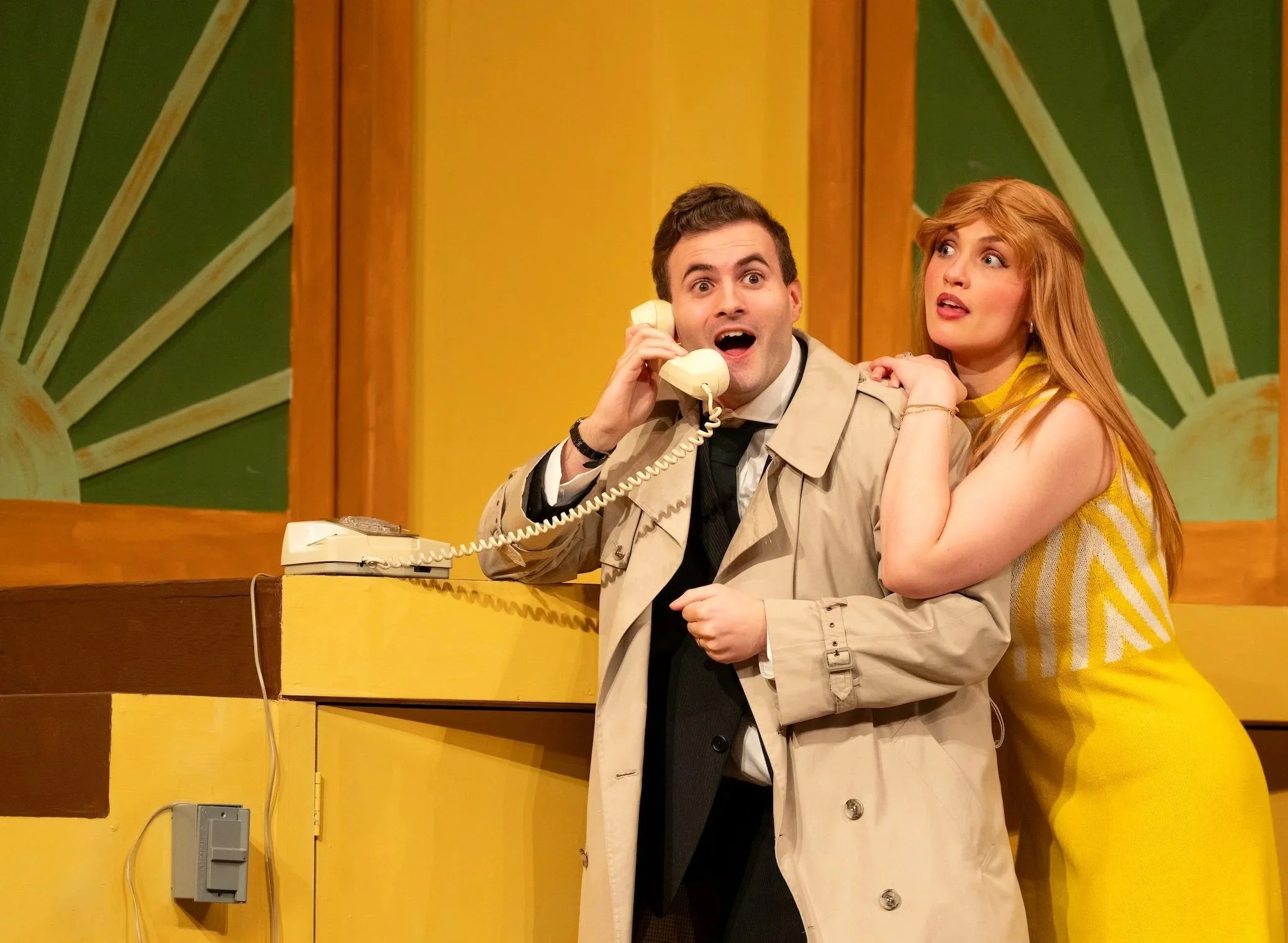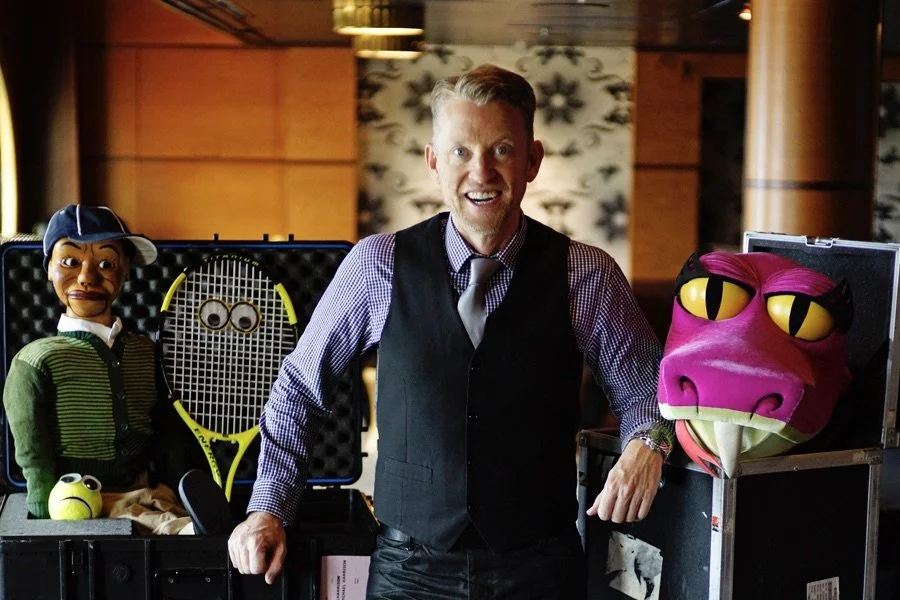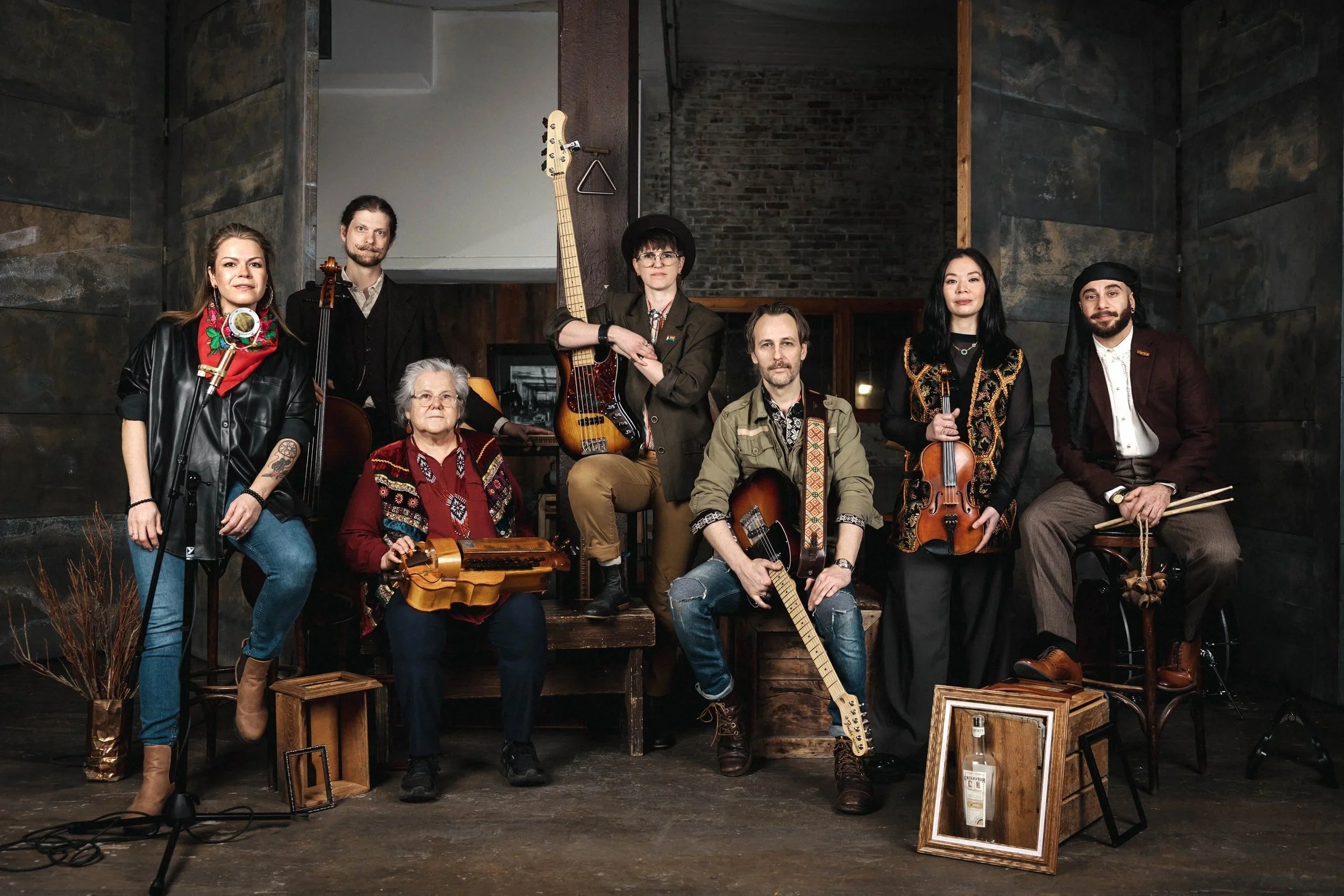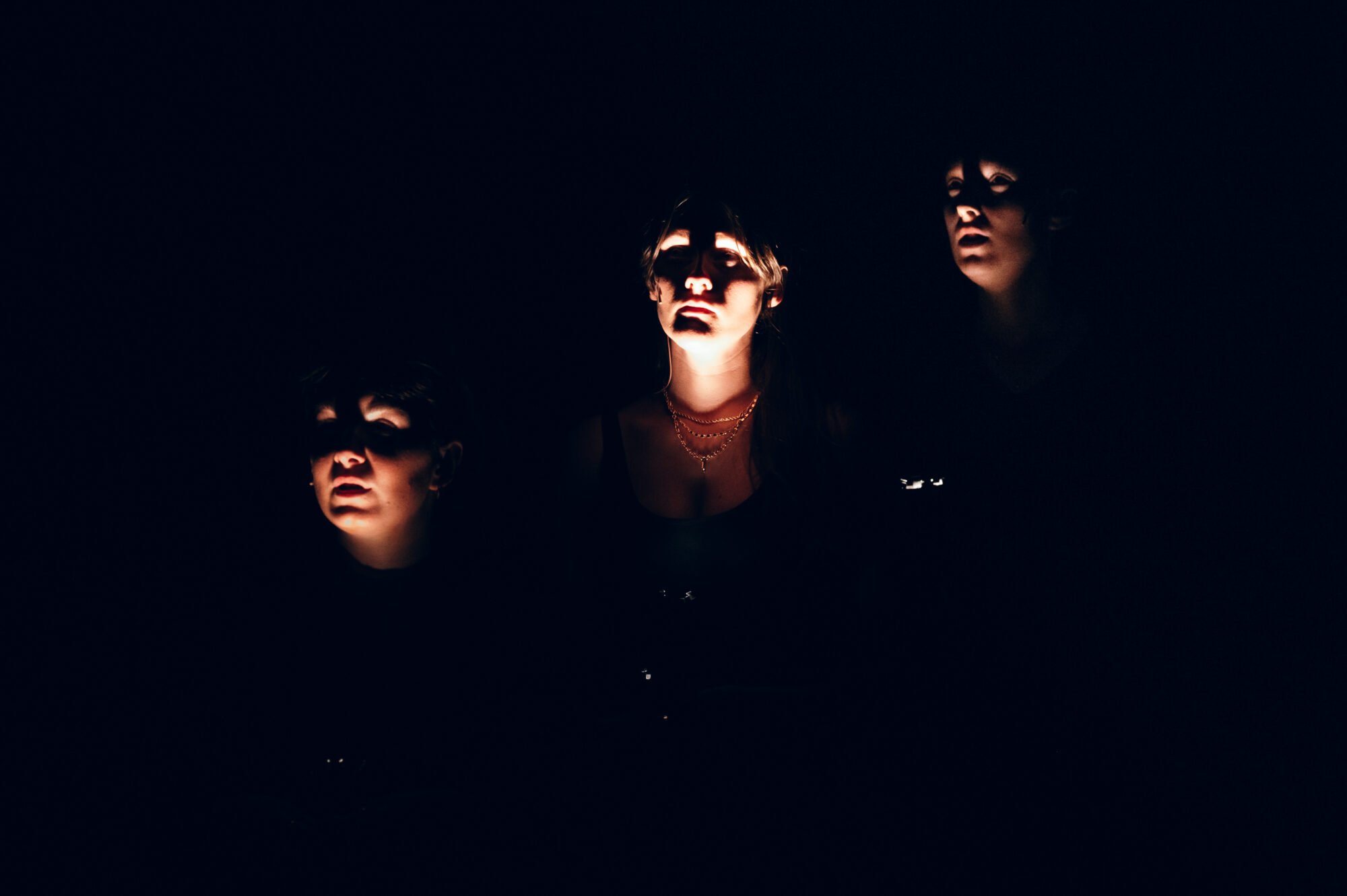Theatre review: Haunting Lampedusa takes a complex look at two lives in a callous global economy
Strong performances and atmospheric lighting and music intensify two thought-provoking monologues
Robert Garry Haacke. Photo by Javier R. Sotres Photography
Melissa Oei. Photo by Javier R. Sotres Photography
Pi Theatre presents Lampedusa at the Vancity Culture Lab until May 21
DENISE AND STEFANO live roughly 2,000 kilometres apart, both stuck in jobs no one would want. She is a payday loan collector who has to hound money out of Leeds, England’s down-and-out. He’s a fisherman on the Italian island of Lampedusa, but because the Mediterranean has been ravaged of its sealife, his new work is fishing for refugees instead. Sometimes they’re alive in their rickety boats. Often they’re floating dead in the sea.
In this haunting and intense new Pi Theatre production of Lampedusa, we watch Denise and Stefano alternate monologues about their experiences, waiting for their stories to converge—which, to his credit, British playwright Anders Lustgarten never forces to happen. It’s an unusual but effective choice: the audience has to think hard and make its own complex associations between the two stories—and the callous global political and economic forces that have created their predicaments.
Tackling roles that require beyond-challenging accents, Melissa Oei and Robert Garry Haacke bring their characters to full, passionate life in the two-hander. That’s saying a lot: their regional accents are sustained and credible, and they go far beyond becoming mouthpieces for the political ideas Lustgarten wants to get across. The intimate Culture Lab setting makes their confessionals feel even more immediate.
In one of several parallels, they’re both forced to put on a granite-hard exterior to carry out their work. For Stefano, that manifests in a kind of tough, masculine stoicism—an essential rigidity that deflects or holds in the pain. Watch how tightly Haacke steels himself in an extended sequence where he describes the gruesome details of the bodies he finds. (Some look lifelike, others bloated, others gnawed at by fish.) For Denise, she complains about seeing it all: people jumping out of three-storey windows to escape her, or resorting to turning on the “waterworks”. Even when it looks her straight in the face, she doesn’t trust kindness: “Why would anyone be kind?”
Under the sensitive direction of Richard Wolfe, both characters soften that toughness and come to see the world with new eyes. For Denise, it starts by having to support her ill, developmentally challenged mother through a welfare system that insists she endure an indifferent work-capability assessment. It’s driven further home by one of her debtors, a Portuguese single mother, who invites her for tea despite the reason for Denise’s “visit”.
In the case of Haacke, his world view shifts when he meets a kind mechanic from Mali who dreams of reuniting with his wife. (Their gentle moments of bonding are poignant—and the play could probably stand just as strongly without the less probable stormy climax Lustgarten tries to craft from the relationship.)
What both are able to find is hope in the darkness—a theme brought to moody life in Lauchlin Johnson’s lighting and Carolyn Rapanos’s sets, especially with the watery blue dappled light and red-glowing buoys that illuminate the final quarter. One of the atmospheric highlights of the evening is the music by Celso Machado, and his contributions of the haunting West African kora and percussion to the score and Steve Charles’s sound design.
Though it lacks traditional dramatic tension, the script itself is thought-provoking and well-researched–no surprise when you consider the playwright has a wide-ranging international experience that’s taken him from teaching on America’s Death Row to a PhD in Chinese politics. It’s bold and unexpected for a play to not only to take on the ripped-from-the-headlines tragedy of migrants dying trying to cross the Mediterranean, but the way they might fit into capitalist systems and social bureaucracies should they ever make it to the supposed economic havens of their dreams. Lustgarten manages to humanize all this, as well as weaving a host of other complex issues into the monologues—whether it’s the racism the mixed-heritage Denise has faced, or the corrupt politicians who have sucked the ocean of Stefano’s fish.
Lustgarten tries to convey some hope for humanity through kindness and friendship. But as Stefano succinctly puts it, “Europe is fucked.” So is the world these days, and helped by some strong performances here, that message resonates across the oceans and many more thousands of miles to Vancouver. We're left here to ponder our own complicity in it all as we head out into the night.














